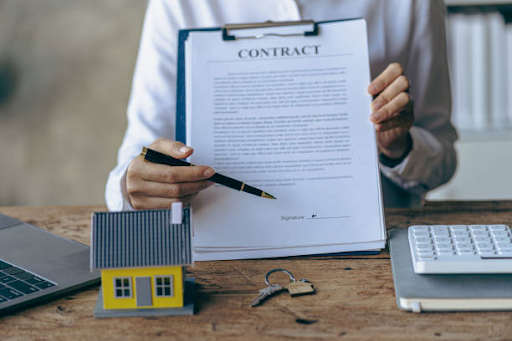Selling your property is a significant undertaking, and it involves more than just finding the right buyer. One crucial aspect of a successful property sale is ensuring that you have all the necessary documents in order. In this article, we’ll guide you through the essential documents you need before selling your property.
Understanding the Sale Process
Before you dive into the document checklist, it’s important to have a clear understanding of the process of selling your property. This involves several crucial steps that lay the foundation for a smooth transaction.
Preparing to Sell Your Property
Before you dive into the document checklist, it’s important to have a clear understanding of the process of selling your property. This involves several crucial steps that lay the foundation for a smooth transaction.
Assessing Property Value
Determining the market value of your property is a crucial first step. You might want to consider hiring a professional appraiser to assess its worth accurately. This valuation will help you set a competitive and realistic selling price. Additionally, you should gather any recent property valuation reports or documents to support your asking price.
Legal Requirements
Each jurisdiction may have specific legal requirements for property sales. These could include zoning restrictions, building permits, or other regulatory documents. It’s essential to research and comply with these requirements to avoid legal complications down the road. Creating a checklist of these requirements, organized by priority and deadlines, can help you stay on top of this aspect of the sale.
Assembling the Necessary Documents
Once you have a clear understanding of the sale process, you can start gathering the required documents:
Property Title and Deed
The property title proves ownership, while the deed transfers ownership to the buyer. Ensure you have these documents ready and that there are no outstanding liens or disputes regarding the title. Having a clean title is essential for a smooth sale process.
| Document | Description | Status |
|---|---|---|
| Property Title | Proof of ownership | [ ] Yes |
| Deed | Transfer of ownership document | [ ] Yes |
| Lien Check | Verification of any outstanding liens | [ ] Yes |
| Title Insurance | Optional, but recommended for buyer’s assurance | [ ] Yes |
Mortgage and Loan Documents
If you have an outstanding mortgage or loan on your property, you’ll need to provide documents related to these financial arrangements. This includes the current loan balance, payoff details, and any prepayment penalties.
- Current loan balance statement.
- Mortgage or loan payoff details.
- Any prepayment penalty information.
- Contact details for the lender.
By having these documents organized and readily accessible, you can facilitate a smoother transaction and instill confidence in potential buyers. In the second half of this article, we will continue exploring the other essential documents needed for a successful property sale.
Documents for a Smooth Sale
With the foundational understanding of the sale process and the initial set of essential documents in place, let’s delve deeper into the paperwork needed for a seamless property sale.
Personal Identification
As a seller, you’ll need to prove your identity during the sale. Ensure you have a valid government-issued photo ID, such as a driver’s license or passport, readily available. In addition to your ID, you may need to provide proof of citizenship or residency, especially if you are selling property in a foreign country.
Property Disclosure Statements
Property disclosure statements are vital to maintaining transparency during a property sale. These documents detail any known issues or defects with the property. Depending on your jurisdiction, you may be legally obligated to disclose certain information, such as previous repairs, pest infestations, or environmental hazards. It’s crucial to be honest and thorough in these disclosures to avoid legal issues after the sale.
- Any past or current structural issues.
- History of water damage or leaks.
- Pest infestations or treatments.
- Environmental hazards (e.g., asbestos, lead paint).
Insurance Records
Insurance records are often overlooked but can be crucial during a property sale. Gather documents related to your homeowner’s insurance policy, including policy details and coverage information. This helps potential buyers understand the property’s insurance history and what coverage they may need to secure.
Utility Bills
Having recent utility bills on hand can be useful when potential buyers inquire about typical monthly expenses. This includes bills for water, electricity, gas, and any other utilities specific to your property. It provides a clear picture of the property’s ongoing costs, which can influence a buyer’s decision.
- Electricity bills for the past 12 months.
- Water and sewage bills for the past 12 months.
- Gas bills for the past 12 months.
- Any other relevant utility bills.
Property Maintenance Records
Buyers appreciate well-maintained properties. To demonstrate that you’ve taken good care of your home, compile maintenance records. This includes receipts and invoices for repairs, renovations, or upgrades you’ve made over the years. Organize these documents to showcase the property’s history of upkeep.
Homeowners Association Documents
If your property is part of a homeowners association (HOA), you’ll need to provide relevant HOA documents. These might include the HOA bylaws, meeting minutes, financial statements, and any outstanding dues. Buyers will want to know about their responsibilities and any ongoing commitments associated with the HOA.
Legal Assistance and Real Estate Agents
Navigating the complexities of property sales can be challenging. Many sellers find it beneficial to seek legal assistance and enlist the services of a real estate agent.
The Role of Real Estate Agents
Real estate agents play a crucial role in marketing your property, negotiating deals, and handling the paperwork. They have extensive experience in the field and can guide you through the entire process. If you decide to work with an agent, ensure you have a clear understanding of their fees and responsibilities.
Hiring an Attorney
Having an attorney specializing in real estate can provide legal protection and peace of mind during the sale. They can review contracts, ensure compliance with local laws, and address any legal issues that may arise. It’s a wise investment to protect your interests.
Conclusion
Selling your property involves a significant amount of documentation and preparation, but with the right documents and professional assistance, the process can be much smoother. By following the guidelines and checklists provided in this article, you’ll be well-prepared to embark on your property-selling journey with confidence.
FAQs
1. Do I need to hire a real estate agent to sell my property?
Hiring a real estate agent is not mandatory, but it can be highly beneficial. They bring expertise in marketing, negotiation, and paperwork handling, which can make the process smoother and more efficient. However, it’s essential to weigh the costs and benefits before making a decision.
2. What should I do if I discover undisclosed issues with my property after the sale?
If you discover undisclosed issues with your property after the sale, it’s advisable to consult with an attorney. Legal recourse may be necessary, depending on the nature and extent of the undisclosed problems. Document all communications and evidence related to the issue.
3. Can I sell my property if I have an outstanding mortgage?
Yes, you can sell your property if you have an outstanding mortgage. However, you’ll need to pay off the remaining mortgage balance from the proceeds of the sale. It’s essential to communicate with your lender and understand the exact payoff amount and any associated fees.
4. What happens if I can’t find some of the required documents?
If you can’t locate some of the required documents, it’s crucial to be honest with potential buyers and seek guidance from a real estate professional or attorney. They can help you navigate the situation and advise on possible alternatives or solutions.
5. Is it necessary to disclose past renovations or repairs, even if they were done professionally?
Yes, it’s essential to disclose all past renovations or repairs, even if they were done professionally. Full transparency is crucial to building trust with buyers and avoiding legal issues in the future. Provide documentation and details of any work done on the property.












